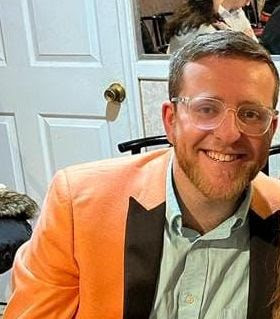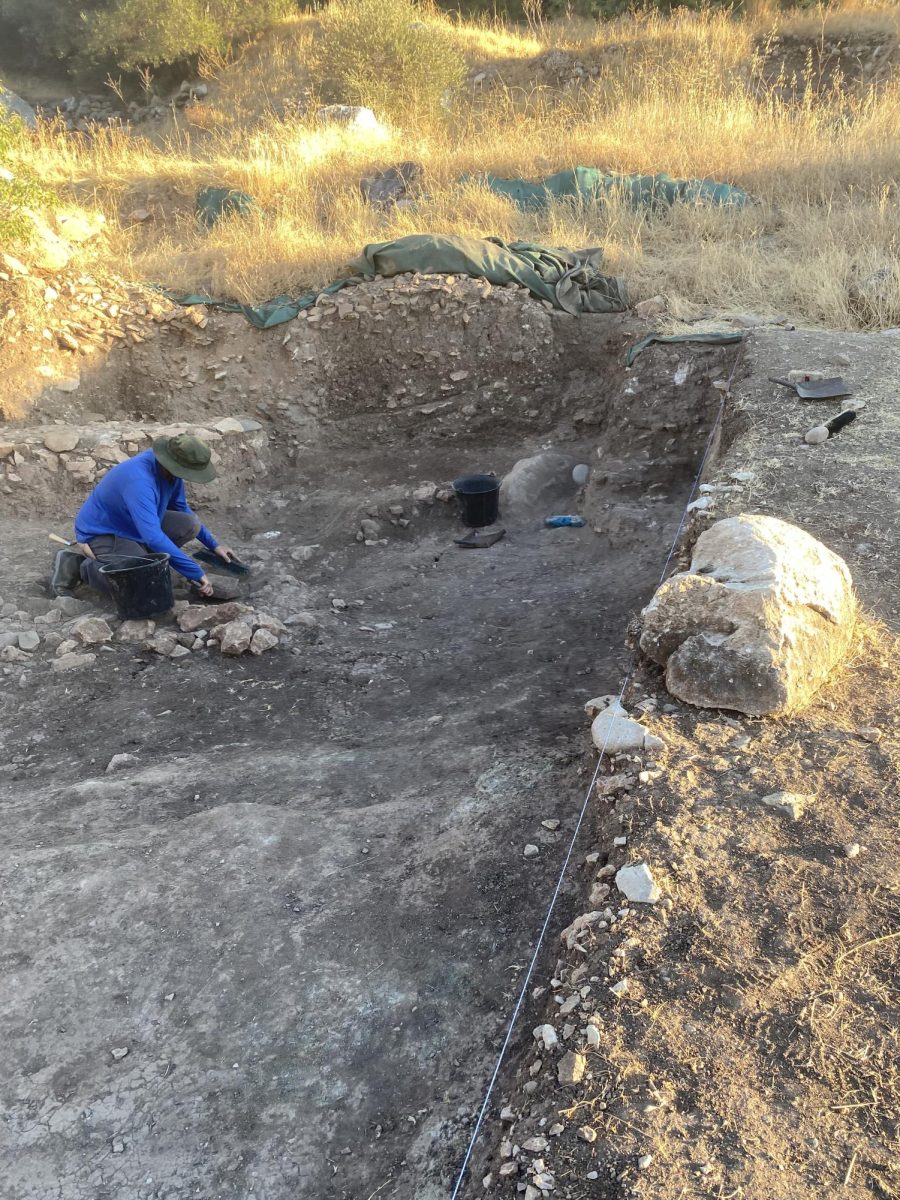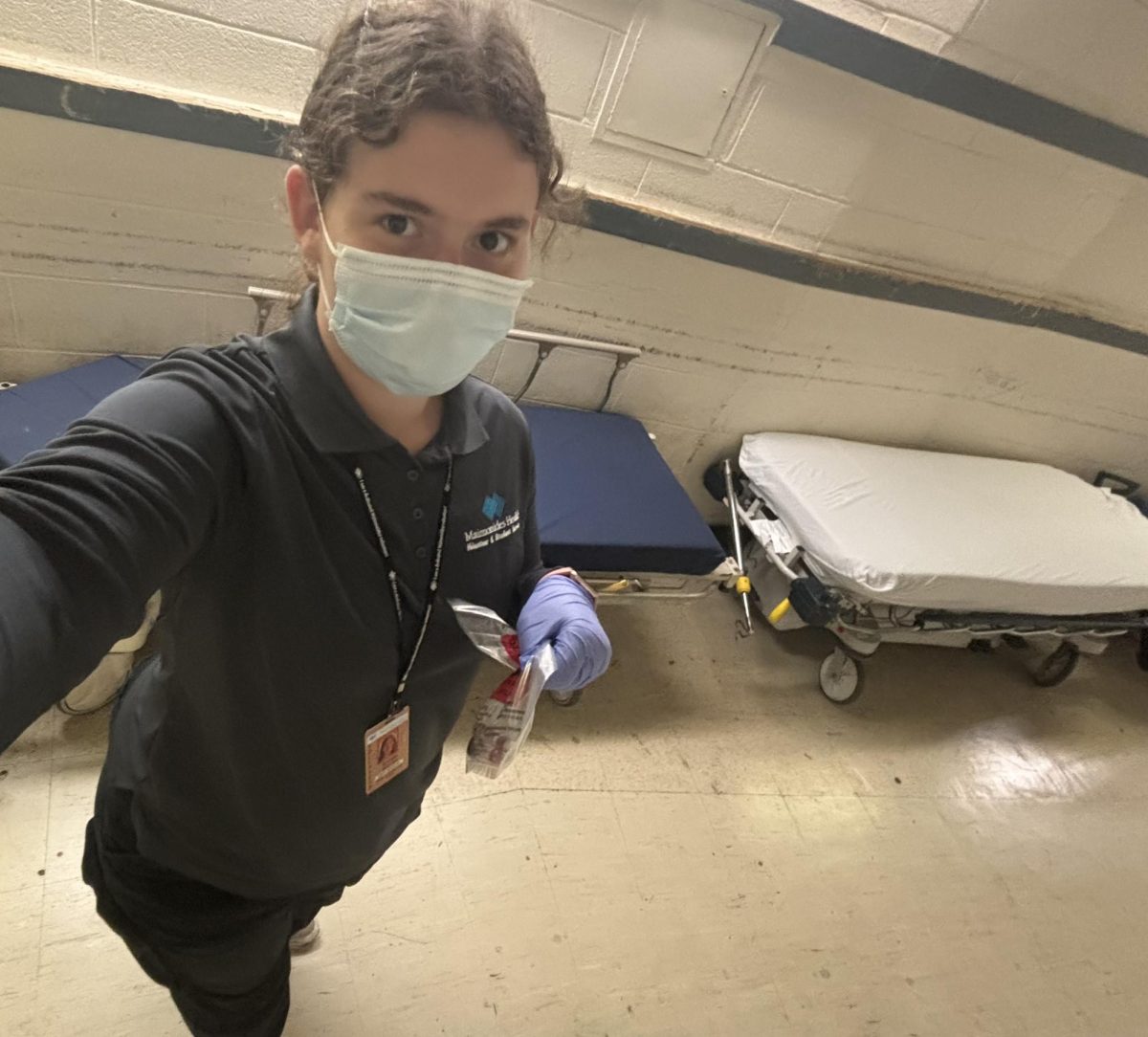
RC: Alright, can you tell us a little about yourself? Where did you grow up? Where did you go to high school? Where did you go to college?
B: Yeah, I grew up mostly in Silver Spring, Maryland. My father’s a doctor, so he moved around for medical school and residency fellowships. But we were in Cherry Hill, New Jersey, before that, so that’s why I’m a Philadelphia sports fan.But I grew up in Silver Spring, Maryland, and went to the Yeshiva of Greater Washington for high school. Then, after 12th grade, graduating from the school of Greater Washington, I went to Gush for two years. It was a great, phenomenal time.
I came back afterward to YU, majored in data analytics, and minored in management. I should have been a double major, but I was missing one general elective, and I’m still bitter about it. They were like, “Oh, just take a photography class,” and I was like, “Why?”
Anyway, that’s my major and minor: data analytics and management. After I finished YU, I did Semikhah for the past three years. Last year, in addition to Semikhah, I was in the Frisch Kollel, so I did a little bit of learning and a little bit of teaching with the 11th graders there. Yeah, and I also had a rabbinic internship last year at the Riverdale Jewish Center.
RC: Did you always know you wanted to become a teacher, or at some point, did you want to become a data analyst, and how did you make that switch?
B: It’s a great story. In Israel, I assumed I liked math. Math is my subject. It’s great, like basic algebra and trig stuff. Nothing more than calculus. But because I like math, I thought I was going to go into accounting. Good, solid job. Not a big deal. But on Day two of accounting at YU, I fell asleep. I was like, “It’s so boring”. I was bored. I did poorly on tests. I couldn’t pay attention because everything was moving so slowly, and that was in the honors class. It was really frustrating, so after like two days, I had to switch gears, and I went into data analytics as a major just because I thought it was fun.
I took an intro class on data analytics. It was a lot of fun. In the YU business school, many of your core requirements overlap, so everyone needs to take Introduction to Data Analytics, everyone needs to take Introduction to Accounting, and everyone needs to take Marketing 101. As I was playing the field in the business school, data analytics caught my eye; it was a lot of fun.
But then, after that year in YU, I worked in Moshava Ennismore in Canada as division head. I was also a counselor at Camp Stone for two summers before that. I went on to be a division head in Moshava Ennismore and eventually came back to Camp Stone to be a division head, too. Through the role of being a division head, I was like, “Oh, there’s something fun about being logistical, being organized, figuring things out, being creative, and also trying to teach morals and lessons.” So that propelled my career in education with a hopeful future in administration.
RC: This being your first year, how did you decide to make the switch from Frisch to Ramaz? Why did you choose Ramaz?
B: It was kind of simple. As I was applying to different places and jobs, I was talking to a bunch of other schools. I did a couple of model lessons here and there, so as I was doing that and applying, every school I applied to said, “We don’t know yet if we have room.” This is in, like, February or March. I spoke to my mentors in Jewish education. I spoke to Rabbaim of mine. I spoke to other teachers and people that I respect in the industry. They’re like, “February, March, you should start applying, doing model lessons,” and schools are like, “Oh, come give model lessons, ” and then when I was like, “Alright, what’s the deal?”, they said, “I don’t know yet.” Ramaz didn’t say that. Ramaz was like, “We have room.” I thought to myself, “Well, I’m not waiting around until April.” So it was the efficiency and, you know, structure and organization of Ramaz that brought me here. It’s nice, meaning I could have waited to see what other offers there were, but there’s something nice about going to an institution that knows what they need and want and is willing to say that.
RC: When you were coming into Ramaz, did you have any expectations about what it would be like, and how has your experience been so far?
B: It’s certainly been fun. The one thing is that no matter how much you prepare during the summer before you know anyone, it’s not going to help you for the students you have. I’m teaching two and a half gemara classes this year, you know, both to 10th grade and then to the Mechina ninth graders. So, I learned through the Gemara; I read through the Gemara and knew how I wanted to structure it and the types of activities I wanted to do with it.
But the preparation doesn’t prepare you for the kids in your class. It just doesn’t, so you go in, and you have no idea who’s the character who sits and focuses, who’s rigorous at taking notes, who can talk, leave the class for five minutes, and still know everything. I knew I wasn’t going to be prepared for that, and I wasn’t, so the first couple of weeks, I started adjusting to it. My philosophy over the summer was to learn as much as I could to better adapt later. The more information you know, the more you can play around with it and toy with it. So it’s been good so far to see.
RC: So, you teach multiple Germara classes and the 12th-grade Dvar Torah class?
B: Yeah, and ninth-grade JLT, so there are five classes.
RC: As a Judaic studies teacher, do you have a favorite story from the Tanach that you could share with us?
B: It’s a great question. I really like my Bar Mitzvah parashah, Bereshit, and analyzing the Cain and Hevel story, not even creation, but Cain and Hevel. “וַֽיְהִי֙ בִּהְיוֹתָ֣ם בַּשָּׂדֶ֔ה וַיָּ֥קׇם קַ֛יִן אֶל־הֶ֥בֶל אָחִ֖יו וַיַּהַרְגֵֽהוּ׃”, Right, they got up in the field, and then Cain went and killed him. They’re standing in the field, and then he killed him. What went from A to B? It’s like a solid story. I’ve heard many interpretations of it, and they all sound great, so it’s hard to know.
RC: Finally, what is a fun fact about yourself or a hobby you like doing outside school?
B: Well, a fun fact is my mother, myself, and my sister-in-law all share a birthday: October 14. I was the best birthday present my mother ever had, and then my brother married a girl whose birthday is also October 14. So, it’s going to be an easy one to remember.If you want another fun fact, I won the science fair in 12th grade. It was a project on caffeine. I’ll leave it at that and keep it a little bit cryptic for you, but I did win a science fair in twelfth grade.


